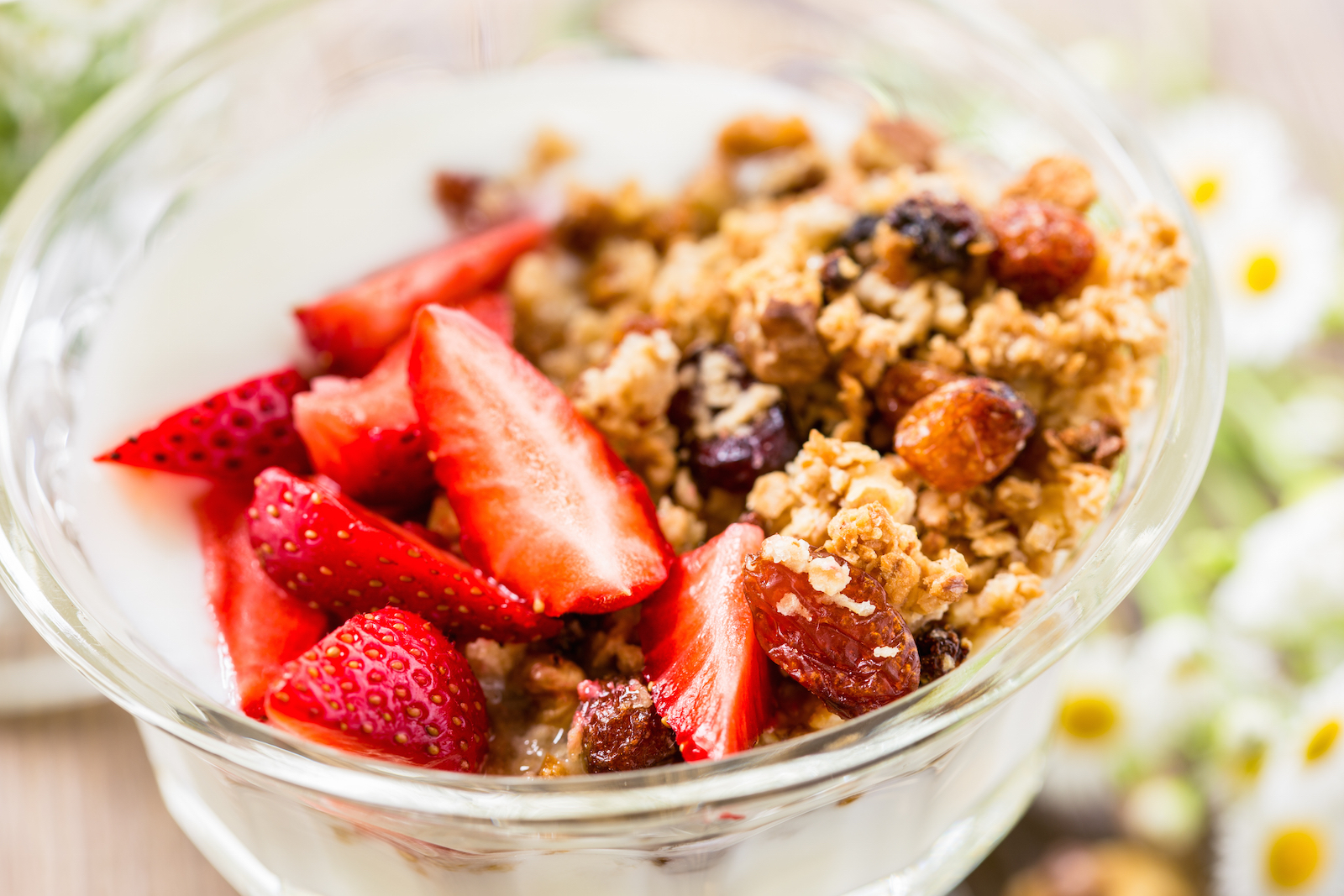 Eat Empowered
Eat Empowered  Gut Health
Gut Health  Healthy Eating Tips
Healthy Eating Tips  Healthy Shopping
Healthy Shopping
Are Plant-Based Yogurts Healthy?
Home » Eat Empowered » Are Plant-Based Yogurts Healthy?
Ask Keri: There are more dairy-free yogurts at the store each week, and I’m not sure if I should make the switch. Are plant-based yogurts healthy?
Keri Says: Like most packaged foods (think: protein bars), plant-based yogurts vary wildly in terms of their ingredient lists and nutrition facts. Overall, they are not inherently healthier than dairy yogurts, but there are nutritious options if you’re avoiding animal products.
This is definitely an important question, since plant-based yogurts are really taking off. Indie brands like Forager Project and Kite Hill have been picking up steam for a while, and now mainstream brands are getting in on the dairy-free action. Chobani recently launched a non-dairy line, and Dannon is expected to release a dairy-free version of its Oikos Greek Yogurt shortly.
RELATED: Cottage Cheese vs. Greek Yogurt: Which Is Healthier?
So, what do you need to know to figure out which are healthy options and which to avoid?
Are Plant-Based Yogurts Healthy?
First of all, I love Greek yogurt. It’s a protein-rich, low-sugar breakfast food (or snack) that contains gut-boosting probiotics and is made from just one whole-food ingredient. Of course, there are a million versions that are terrible thanks to added sugar, flavors, and industrial milk (I always recommend buying organic and grass-fed when possible).
I also love that people are getting more interested in eating plant-based foods, because as an overall rule, the more plants in your diet, the better. (In terms of your own health and the good of the planet.)
RELATED: The Essential Guide to Plant-Based Protein
The trouble is that while whole plant foods like nuts are incredibly nutritious, that doesn’t always translate when they’re processed into packaged foods.

Let’s look at some of the nutrition facts. An easy place to start is to compare Chobani’s dairy and non-dairy Greek-style yogurts. A serving of plain Chobani Greek contains 15g of protein and just 4g of sugar (which is all natural sugar from the milk), plus a significant amount of calcium and vitamin A. A serving of plain Non-Dairy Chobani contains 1g of protein and 7g of added sugar, plus a decent serving of iron. In terms of ingredients, the dairy is just cultured milk, while the non-dairy is cultured coconut, cane sugar, and a few other ingredients including natural flavors.
In this scenario, the dairy option is obviously much healthier. In fact, even if you’re a vegan, I wouldn’t recommend eating this non-dairy yogurt, because lots of sugar and no protein means you’ll crash soon after and be hungry again. Oatmeal with a little fruit and some nut butter would be a much better choice.
But there are also better options. Forager Project’s Cashewgurt (made with cashew milk, obviously, and a little coconut cream) is available in a plain unsweetened flavor that has 3g of protein and just 1g of sugar. Even better: Kite Hill makes Greek-style yogurts from almond milk, and its unsweetened plain contains 11g of protein and just 2g of natural sugar from almonds. It’s also a great source of calcium and iron.
RELATED: The Crazy-Easy Way to Make Cashew Milk With Just Two Ingredients
The Bottom Line
Unfortunately there’s no hard and fast rule I can give you on whether to skip or opt for plant-based yogurts.
Keep in mind that plain Greek yogurt often wins on nutrition facts, but if you’re a vegan or are just trying to eat more plant-based foods, you’re going to have to flip over the container and read the label carefully. Look for low sugar, as much protein as possible, and a short (and not sweet) ingredient list.
And one important rule applies to both dairy and non-dairy yogurts: The flavored ones are generally all sugar bombs. Stick to “plain” and add your own flavor by sprinkling on whole berries, nuts, and seeds)
(Photos: Shutterstock)
The Nutritious Life Editors are a team of healthy lifestyle enthusiasts who not only subscribe to — and live! — the 8 Pillars of a Nutritious Life, but also have access to some of the savviest thought leaders in the health and wellness space — including our founder and resident dietitian, Keri Glassman. From the hottest trends in wellness to the latest medical science, we stay on top of it all in order to deliver the info YOU need to live your most nutritious life.
RECENT ARTICLES

Want a sneak peek inside the program?
Get FREE access to some of the core training materials that make up our signature program – Become a Nutrition Coach.
Get Access"*" indicates required fields













































































































































































































































































































































































































































































































































































































































































































































































































































































































































































































































































































































































































































































































































































































































